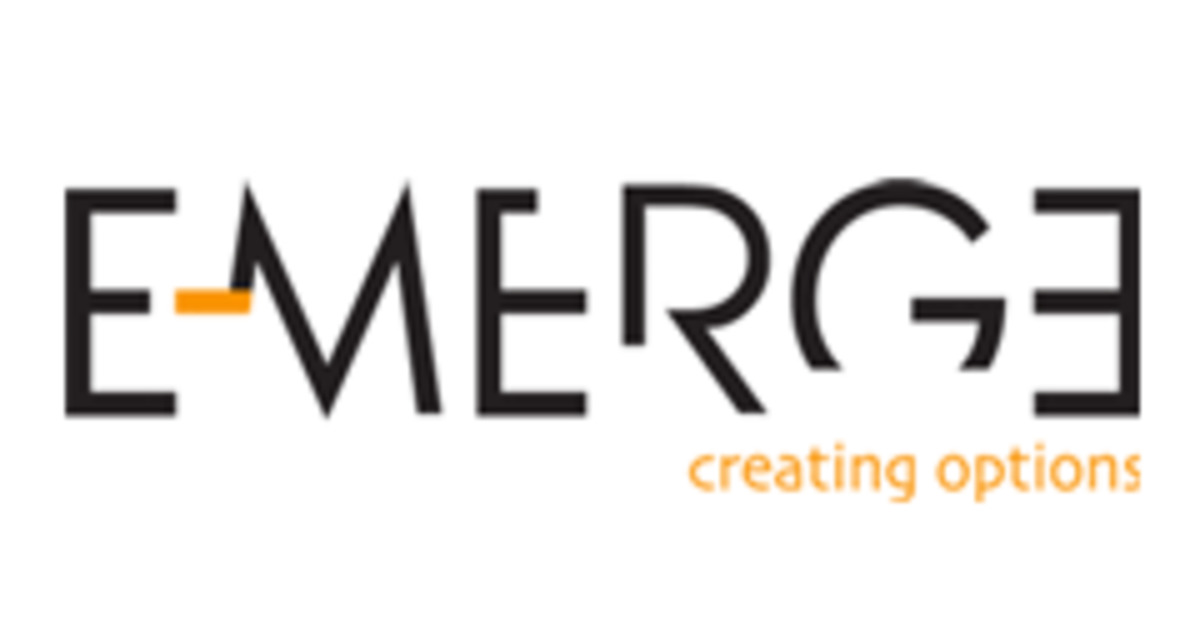JOIN OUR WHATSAPP GROUP. CLICK HERE
Job Vacancies At International Organization for Migration-Individual Consultant-assessment of effectiveness sustainable continuity and cultural acceptability of the community health worker
CONSULTANCY ON “AN ASSESSMENT OF EFFECTIVENESS, SUSTAINABLE CONTINUITY AND CULTURAL ACCEPTABILITY OF THE COMMUNITY HEALTH WORKER CAPACITY BUILDING MODEL FOR MIGRATION AFFECTED COMMUNITIES OF SOUTHERN AFRICA”**
Organization: IOM Regional Office
Duty Station: Remotely with travel to Pretoria when needed
Duration: 2 months (September-October 2020)
Reference: SKNB Phase I/PD/2020
Submission Deadline: August 23, 2020
II. Context and Scope
The International Organisation for Migration (IOM)’s Regional HIV-Sexual Reproductive Health and Rights (SRHR) Knows No Borders Programme (SKNB) being implemented in six countries, aims at “improving quality of life and HIV-SRH outcomes among vulnerable youth, migrants and sex workers in Southern Africa”. The programme is currently preparing for a second phase of implementation (anticipated implementation period is 2021-2026). The proposed second phase is a continuation of the current phase and seeks to increase the effectiveness of development aid in responding to the SRHR and HIV challenges within the migration contexts and builds on existing efforts by IOM and its partners over the previous years.
The SKNB programme has a strong community health promotion component which delivers services and information at the community level through a network of Community Health Workers (CHWs) called Change Agents (CAs). The umbrella term “community health worker” (CHW) embraces a variety of community health aides selected, trained and working in the communities from which they come. Within the SKNB programme, the CAs have made a significant contribution to the fight against HIV and SRH problems including changing social norms, reducing stigma and linking and retaining patients in appropriate care and helping them adhere to long-term therapy through an improved community referral system. The programme capacitates CAs using a standardised curriculum that entails seven core modules including programme objectives and strategy, SRH and HIV prevention and care, M&E tool, community referral systems, dialogue facilitation skills and advocacy.
At the moment, the programme has a total of over 1000 change agents across the programme sites in six implementing countries of South Africa, Lesotho, Eswatini, Malawi, Mozambique and Zambia. However, recent evaluation and lessons from the field indicated logistical, material, and financial barriers impeding them from carrying out their roles as CHWs. Although the partnership responsible for the ongoing training has demonstrated important achievements attributed to work of CAs, the training provided creates concerns about a lack of sustainable continuity and cultural compatibility. In anticipation of the continuation phase, it is critical that a more comprehensive assessment of the needs, skills and competencies of the change agents are evaluated to guide formulation of effective approaches for continuous capacity building in the future. The recommendations from the assessment will further inform the development of an effective and volunteer-led training programme and an incentive package that upholds principles of participatory action and cultural acceptance. The assessment also serves as benchmark of change agents’ knowledge and capacity to deliver results during future interventions.
III. Purpose of the Consultancy
The assessment seeks to generate evidence on programme activities, approaches and costs as well as the feasibility and effectiveness of Change Agents’ capacity building/training in improving SRH and HIV service delivery in migration affected communities. The assessment is commissioned by IOM in collaboration with Save the Children and partners as a follow-up to the Final SRHR Programme Evaluation Report, which identified as a research priority the feasibility of successfully engaging community health workers. The assessment will require scoping, reviewing, analysing and integrating existing plans, lessons and approaches, and areas of expertise among IOM and partners. The assessment will apply a mixed methods approach of data collection including review of the present evidence and conducting a mini survey among the change agents, programme staff, health workers and beneficiaries. The assessment objectives include:
1) To review the existing evidence on change agents and their impact on service delivery (increased access and use of SRH-HIV services and changed SRH-HIV social norms and attitudes) and strengthening the community health system in the programme sites.
2) Determine to what extent the capacity building efforts – trainings, supervision, monitoring and mentorships provided meet local needs of the beneficiaries and could improve knowledge among CAs.
3) Estimate the relationship between individual CAs’ baseline knowledge and the extent to which new knowledge was acquired.
4) Measure the change in confidence following education, change agents’ satisfaction with the education provided, and estimate the relationship between pre-and post-intervention knowledge and confidence.
5) Determine the extent to which knowledge acquired has been applied to catalyse any behavioural changes at the beneficiary, community and facility levels.
6) Determine the CA motivation/incentive package and sustainability of the training programme including projection of the unit cost of running trainings within the context of COVID19 – before, during and post covid19 era.
7) In line with national policies on community health workers, identify gaps in knowledge and evidence of use of CAs to deliver basic health care information and services and any additional needs of CAs for better execution of their roles.
IV. Specific Tasks to be performed by the Consultant
The Consultant, in consultation with IOM Regional programme team, is expected to:
- Desk review of secondary literature including, but not limited to, the programme lessons and best practices, change agent stories of change and best practices, programme mid-term review and final evaluation reports, policies and strategies regarding the Change Agents work.
- Solicit the views of the programme staff, partners and other key stakeholders on the effectiveness, sustainability, impact and relevance of Change Agents’ capacity building model for strengthening community health systems for HIV and SRH services for migrant populations.
- Conduct a mini-virtual survey with a representative sample of change agents, programme staff, health workers and beneficiaries using appropriate tools for data collection.
- Where appropriate, seek in-country ethical approval/permission and in collaboration with the country programme coordinators.
- Conduct a validation workshop of the assessment findings among the programme staff and key stakeholders.
- Compile the draft and final assessment reports aligned with the IOM writing formats and the draft manual of the IOM’s community health education programme model.
V. Expected Deliverables
The selected consultant will be expected to deliver on the specified scope of work as shown in section IV. Before commencing on the assignment, the consultant will deliver a concept note outlining the detailed approach and methodology for this assessment. Specifically, the expected outputs of the assignment are:
· Output 1: An inception report outlining the technical approach and methodology of the assessment, including a costed work plan and budget.
· Output 2: Preliminary and Final drafts of the assessment Reports that incorporate inputs from programme stakeholders and aligned with IOM requirements.
· Output 3: A draft manuscript (3000 to 6000 words) on the effectiveness of the Programme’s capacity building model for change agents, adapted to a relevant peer reviewed journal.
VI. Payment Schedule –
The consultant will be paid on instalment basis as detailed below:
· 40% submission and approval by IOM of the inception report including the workplan and draft tools for data collection.
· 40% upon submission and approval by IOM of the draft assessment report and validation workshop report.
· 20% upon submission and approval by IOM of final assessment report and draft manuscript.
VII. Deliverables and Deadlines
Expected deliverables
Days
Initial discussion with IOM Regional technical team to clarify assignment and agree on plan of action.
1 day
Inception report (4 pager) outlining the technical and methodological approaches to the assignment.
2 days
Desk review of programme documents and literature including conducting remote consultations/interviews with country stakeholders for their inputs to the design of the programme.
5 days
Conducting an online survey with change agents, focus group discussions and key informant interviews with programme stakeholders
12 days
Conduct a 1-day validation workshop to enlist further inputs from the programme stakeholders for incorporation into the final draft assessment report and manuscript
1 day
Development of a publishable manuscript on effectiveness of the CA capacity building model
5 days
Final assessment report and draft manuscript to IOM
4 days
VIII. Location and Lines of Communication
This position is home-based and may include travels to IOM’s Regional Office in Pretoria or Country Programme sites (depending on COVID19 context). Under the overall supervision of the Regional Director, IOM Southern Africa, the consultant will report directly to the IOM’s Regional Migration Health Manager and work closely with the IOM Country offices and partners.
IX. Timeframe and cost
The assignment will take approximately 30 working days spread over a period of two (2) months, with a start date in September 2020. The consultant will receive a daily professional fee equivalent to the 30 working days.
X. Qualifications and Experience
· An advanced university degree (PhD, Masters or equivalent) in public health, migration and Health studies, development studies, social sciences.
· Minimum of 10 years of experience in capacity building, monitoring and implementation of regional or multi-country HIV and SRHR programmes especially for the young people, migrants and key populations, within migration/mobility contexts.
· Demonstrated experience in development and evaluation of SRH and HIV training programmes for community health workers in Southern Africa.
· Ability to integrate different experiences, methodologies and approaches in conducting community-based action research to inform development of health training programmes from a diverse range of stakeholders.
· Prior experience in facilitating multi stakeholders’ workshops using online platforms.
· Willingness and ability to travel to the field to the conduct assessment and gather data from the change agents and other stakeholders (depending on COVID19 situation).
· Flexibility to adapt to work with programme teams within the context of COVID19 environment.
· Excellent English speaking/technical writing skills required. Portuguese is an added advantage but not a requirement.
Interested individual consultants should submit their applications to [email protected] (with a clear reference to the advert in the subject line) by 23 August, 2020. This application should include a) a cover letter indicating the consultant’s daily professional fees (in EUROS), b) 4-pager technical proposal on his/her capacity and methodology of the assessment and c) the Curriculum Vitae and two samples of relevant evaluation reports. All application files should not exceed 2MB. Only shortlisted consultants will be contacted and notified.
JOIN OUR TELEGRAM CHANNEL. CLICK HERE




Be the first to comment